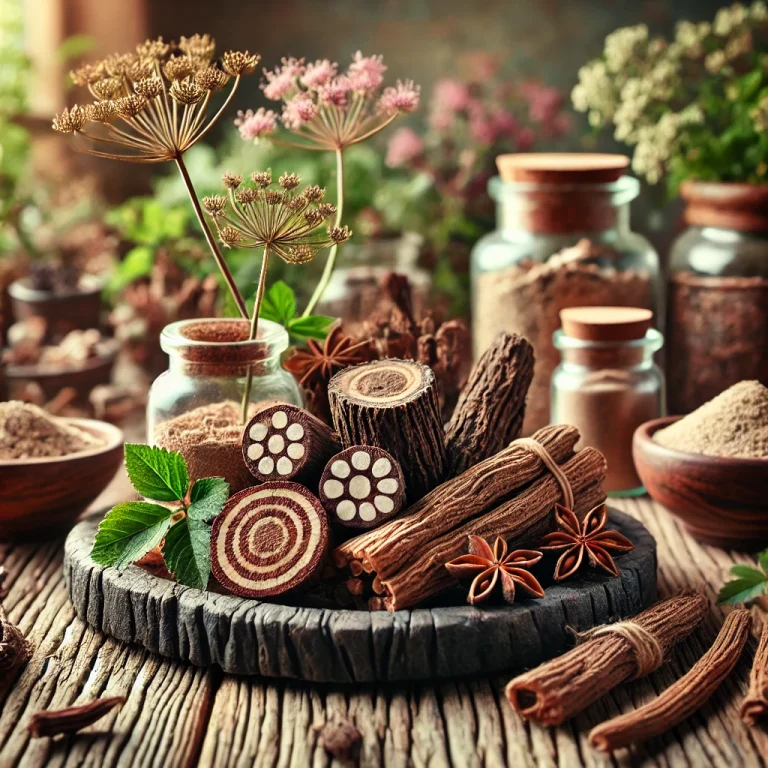A sore throat can strike unexpectedly, leaving you wincing with every swallow and eager for relief. Whether it’s caused by a common cold, seasonal allergies, or an unexpected strain on your vocal cords, acute throat pain can feel relentless. Fortunately, nature offers an array of herbal remedies to help soothe and heal your throat—and they come with the bonus of being free from artificial chemicals or additives. Let’s dive into the comforting world of natural herbs and discover how to ease throat discomfort effectively and safely.
Why Choose Natural Herbs for Throat Pain?
Herbs have been trusted for centuries as powerful allies in managing various ailments. When it comes to throat pain, herbs can:
- Reduce inflammation: Many herbs have anti-inflammatory properties, which help alleviate swelling and redness.
- Combat infection: Certain herbs contain natural antibacterial, antiviral, or antifungal compounds to target underlying causes of pain.
- Soothe irritation: Herbs often coat the throat, providing a comforting, protective layer.
- Boost immunity: Many herbal remedies support the body’s natural defenses, helping you recover faster.
Top 10 Herbs to Soothe Throat Pain
Here are some superstar herbs to keep in your natural medicine cabinet:
- Licorice Root: Known for its natural sweetness, licorice root reduces inflammation and creates a soothing effect.
- Slippery Elm: This herb produces a gel-like substance (mucilage) that coats and soothes irritated throat tissues.
- Marshmallow Root: Similar to slippery elm, marshmallow root is rich in mucilage, making it ideal for easing pain.
- Ginger: Packed with anti-inflammatory and antimicrobial properties, ginger also warms and comforts.
- Chamomile: A gentle herb that reduces inflammation and acts as a natural relaxant.
- Sage: Known for its astringent and antimicrobial qualities, sage is perfect for gargling.
- Echinacea: This immune-boosting herb can help your body fight off the infection causing your sore throat.
- Peppermint: Its menthol content soothes pain and opens nasal passages, aiding overall comfort.
- Thyme: A potent antimicrobial and anti-inflammatory herb that’s easy to incorporate into teas.
- Turmeric: Rich in curcumin, turmeric is a natural anti-inflammatory and antiseptic powerhouse.
Herbal Recipes to Relieve Throat Pain
1. Soothing Ginger and Honey Tea
Ingredients:
- 1-inch piece of fresh ginger, sliced
- 2 cups of water
- 1 tablespoon of honey (preferably raw)
- Optional: a squeeze of lemon
Instructions:
- Boil the water and add the ginger slices.
- Simmer for 10-15 minutes.
- Strain the tea into a mug and stir in the honey. Add lemon if desired.
- Sip slowly to allow the warm tea to coat your throat.
Benefits: Ginger reduces inflammation, while honey provides antibacterial benefits and coats your throat for instant relief.
2. Licorice Root Gargle
Ingredients:
- 1 tablespoon of dried licorice root
- 1 cup of water
Instructions:
- Boil the water and steep the licorice root for 10 minutes.
- Strain and let the liquid cool to a warm, but not hot, temperature.
- Gargle with the solution for 30 seconds and spit out. Repeat 2-3 times a day.
Benefits: This gargle helps reduce inflammation and fights infection, providing lasting relief.
3. Turmeric Milk
Ingredients:
- 1 cup of warm milk (or a plant-based alternative like almond milk)
- 1/2 teaspoon of turmeric powder
- 1/4 teaspoon of black pepper
- 1 teaspoon of honey
Instructions:
- Heat the milk until it’s warm but not boiling.
- Stir in the turmeric, black pepper, and honey until well combined.
- Drink before bedtime to soothe your throat and promote healing overnight.
Benefits: Turmeric and black pepper work together to maximize anti-inflammatory effects, while honey adds a soothing touch.
4. Chamomile and Sage Steam
Ingredients:
- 2 tablespoons of dried chamomile flowers
- 1 tablespoon of dried sage
- 4 cups of boiling water
Instructions:
- Place the chamomile and sage in a large bowl.
- Pour the boiling water over the herbs.
- Lean over the bowl, covering your head with a towel to trap the steam.
- Inhale deeply for 5-10 minutes.
Benefits: This steam reduces throat inflammation and opens up airways, making it easier to breathe and swallow.
5. Thyme Tea with Lemon
Ingredients:
- 1 teaspoon of dried thyme
- 1 cup of boiling water
- 1 teaspoon of honey
- A slice of lemon
Instructions:
- Steep the thyme in boiling water for 5-7 minutes.
- Strain and add honey and lemon.
- Sip slowly to enjoy its antibacterial and soothing properties.
Benefits: Thyme helps fight infection, while honey and lemon provide additional comfort.
Precautions When Using Herbs
While herbs are generally safe and gentle, it’s essential to use them wisely. Here are a few tips to keep in mind:
- Check for Allergies: If you’re trying a new herb, start with a small amount to ensure you don’t have an allergic reaction.
- Consult Your Doctor: If you’re pregnant, breastfeeding, or taking medications, consult a healthcare professional before using herbal remedies.
- Monitor Dosages: Overusing certain herbs, like licorice root, can lead to side effects such as high blood pressure.
- Stick to Fresh, High-Quality Herbs: Ensure you’re using high-quality, organic herbs for maximum benefits.
- Don’t Ignore Severe Symptoms: If your throat pain persists for more than a few days, worsens, or is accompanied by a high fever, seek medical attention.
Lifestyle Tips for Faster Recovery
Herbal remedies work best when combined with healthy habits. Here’s what you can do:
- Stay Hydrated: Drink plenty of fluids, including water, herbal teas, and broths, to keep your throat moist and flush out toxins.
- Rest Your Voice: Avoid speaking too much or shouting, giving your vocal cords a chance to heal.
- Use a Humidifier: Keeping the air moist can prevent further irritation to your throat.
- Avoid Irritants: Stay away from smoke, alcohol, and acidic foods, which can exacerbate throat pain.
Final Thoughts
Acute throat pain doesn’t have to ruin your day—or your week! By turning to natural herbs, you can find relief that’s gentle, effective, and rooted in centuries of tradition. Whether you’re sipping on a warm cup of ginger tea, gargling with licorice root, or inhaling chamomile steam, these remedies bring comfort and healing straight from nature’s pantry. So, the next time a sore throat sneaks up on you, you’ll be armed with the knowledge (and recipes!) to fight back naturally.
Here’s to a happy, healthy throat and a cozy journey into herbal healing! Feel better soon!


